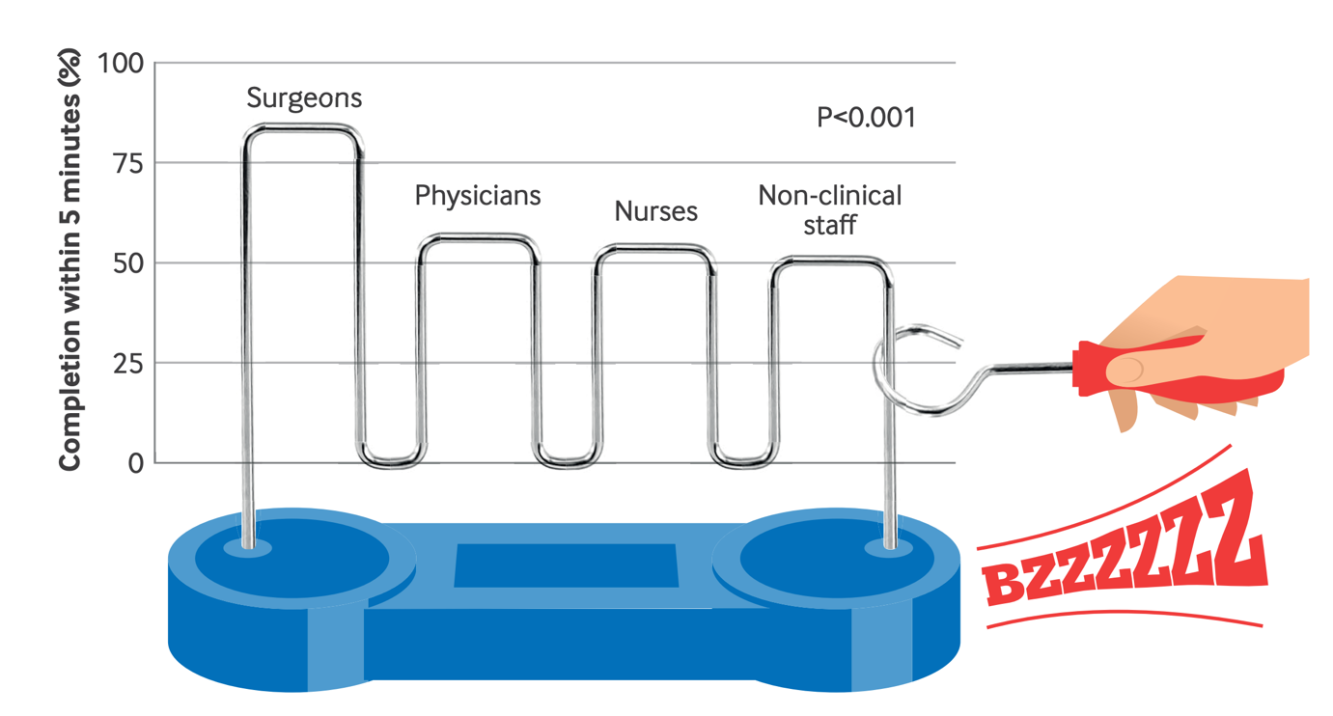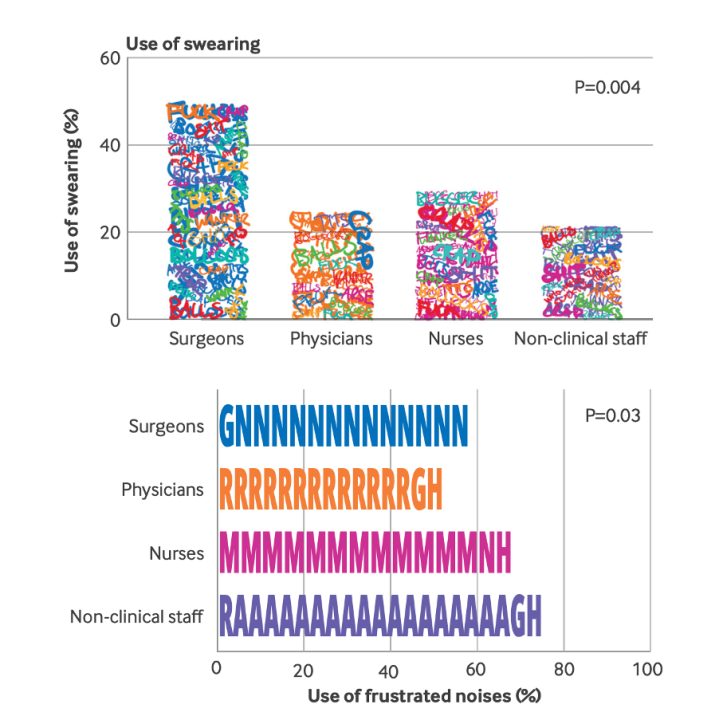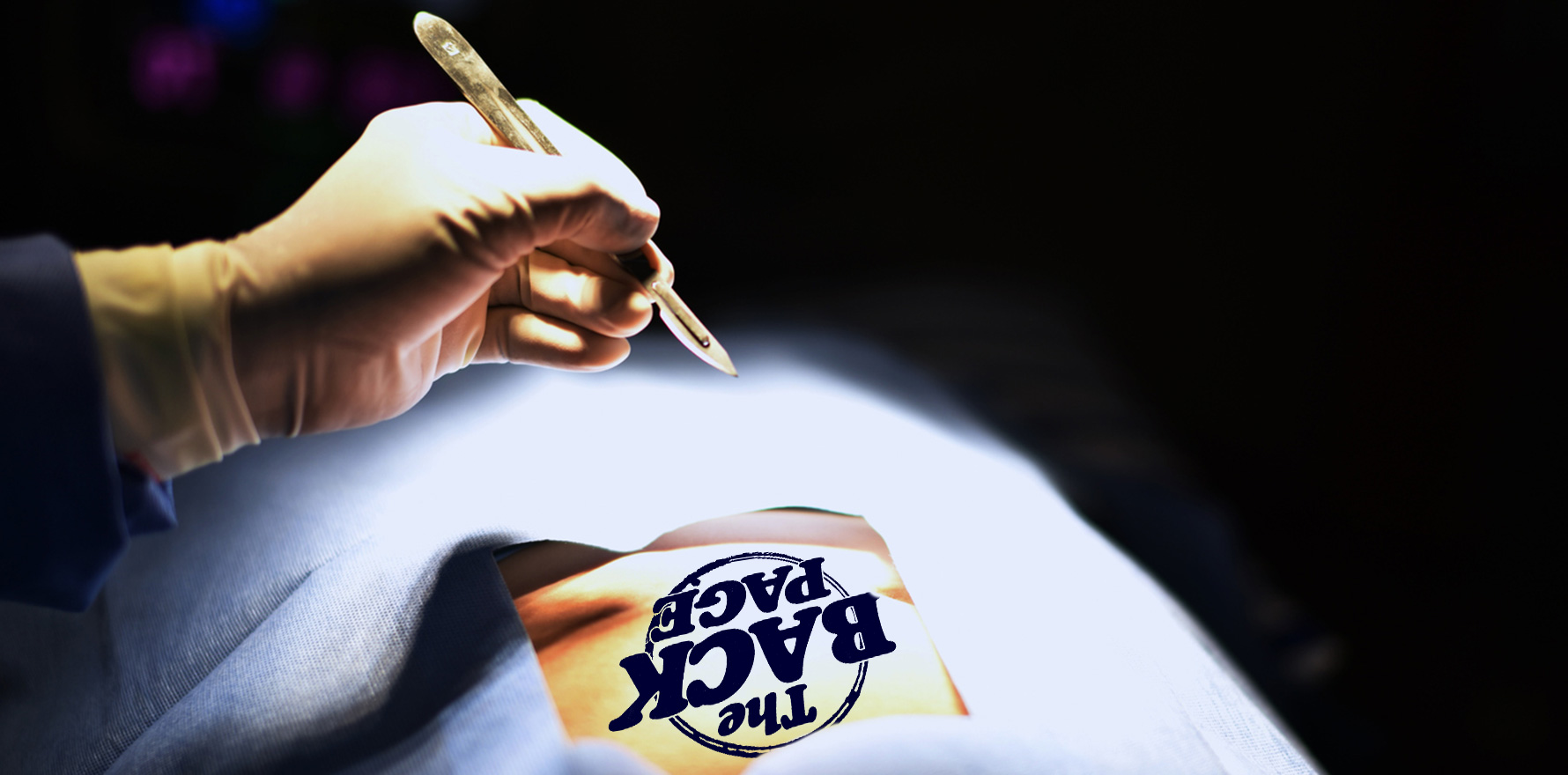The scalpel-wielders really do have greater manual dexterity, aided by frequent profanity.
Remember that Hasbro game Operation, where you have to remove objects with tweezers from a supine tubby fellow while avoiding the electrified metal bits that will cause his red nose to buzz?
The Back Page wonders how many children were inspired towards a career in surgery on the basis of their success or failure at this game.
Thanks to this paper – the BMJ Christmas issue strikes again – we know that not only are surgeons blessed with more motor precision than other health professionals, they’re also much better at swearing.
The team had 254 staff at a major Leeds hospital (60 physicians, 64 surgeons, 69 nurses, and 61 nonclinical staff) take the “buzz wire” challenge. This involves guiding a metal loop along a twisted metal wire path without making contact, which triggers a buzzer and requires you to start again.
Participants were timed and kept going for five minutes or until they completed a run without an error.
They were also monitored for swearing and other “audible expressions of frustration”, i.e. “sighs, groans, or mutters. Swearing was defined as any swear word not suitable for broadcast before the 9pm watershed on UK television according to a publicly available list of offensive language published by [regulator] Ofcom”.
The authors named this the “dexterity assessment of hospital workers (Tremor) comparative study”, which, sorry, but nul points for acronym work.
Surgeons fared significantly better, with 85% completing the task in five minutes, compared with 57% of physicians, 54% of nurses and 51% of non-clinical staff, as shown in this cute graphic:

They also had the fastest median time at 89 seconds (interquartile range 52-169), compared with physicians at 120 seconds, nurses at 135 seconds, and non-clinical staff at 161 seconds.
A full 50% of the surgeons swore during the game, followed by 30% of nurses, 25% of physicians and 23% of clinical staff.
Non-clinical staff made the most frustration noises (75%) followed by nurses (68%), surgeons (58%) and physicians (52%). Even more excellent graphics:

Surgeons’ superior fine motor skills “might be due to either a training effect or innate ability. Surgeons undergo extensive training and continue to use their hands daily while operating. Over time, frequent operating might enhance hand and eye coordination … Conversely, surgeons might be a self-selected group for whom tasks requiring hand and eye coordination is appealing.”
Their propensity for swearing may be “a coping mechanism for high pressure situations to help them maintain skill despite stress”.
This could be exploited for fundraising through use of a swear jar, they suggest – though the Back Page can’t picture these being used over the course of a 12-hour operation, especially in this increasingly cashless world.
They also note that their results “are not applicable to children younger than 4 years for whom the buzz wire game’s small parts may represent a choking hazard, although these individuals are unlikely to be currently employed in secondary care”.
You say that, but this is the NHS we’re talking about.
That’s a Back Page wrap for 2024 – penny@medicalrepublic.com.au will ignore your story tips until 9 January. Happy new year!


